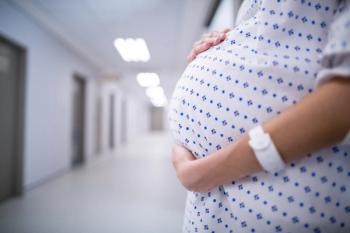
A pair of studies presented at EULAR 2023 offer perspective on the potential for postpartum depression as well as symptoms of depression and anxiety during pregnancy among women with rheumatic disease.

A pair of studies presented at EULAR 2023 offer perspective on the potential for postpartum depression as well as symptoms of depression and anxiety during pregnancy among women with rheumatic disease.

In a recent study, transvaginal ultrasound examination was effective at predicting placenta accreta spectrum in patients with a history of cesarean delivery.

In a recent study, rates of stillbirth were higher in pregnancies with increased maternal body mass index.

Expanding peripartum prophylaxis could be more cost-effective, but would likely lead to significant over-treatment.

In a recent study, induction of labor was found safe and beneficial in pregnant women at 39 weeks of gestation, with increased risks only seen for shoulder dystocia in nulliparous women.

In a recent study, mental disorders were more commonly seen in offspring of mothers diagnosed with 1 or more autoimmune diseases before or during pregnancy.

At the 2023 ACOG Annual Clinical and Scientific Meeting, Haywood Brown, MD, discusses the current maternal mortality rate in the United States, as well as disparities affecting different racial and ethnic groups.

The FDA Advisory Committee recently voted in support of approval for Pfizer's maternal immunization vaccine to help prevent RSV in infants. In this Contemporary Pediatrics® interview, Tina Tan, MD, FAAP, FIDSA, FPIDS, pediatric infectious diseases attending, Ann & Robert H. Lurie Children's Hospital, Chicago, explains what this means for this patient population ahead of an expected FDA decision in August, 2023.

To improve the gap in low-dose aspirin prophylaxis use in patients with risk of preeclampsia after recommendations, experts created a metric.

When examining studies on cervical cerclage placement and complications, reviewers found complications were most common in physical examination-indicated cerclage and least common in history-indicated cerclage.

In a recent study, offspring were more likely to develop type 1 diabetes if they were born to mothers diagnosed with depression or anxiety during pregnancy.

In a recent study, cardiac remodeling and overall function alterations were seen in fetuses with maternal hypothyroidism.

In a recent study, maternal fever was more common in patients who received epidural analgesia and was associated with adverse neonatal outcomes.

In a recent study, cesarean section was more common in women with a traumatic brain injury during pregnancy, especially during the third trimester.

In a recent study, differences in pain for women taking esketamine alongside epidural anesthesia for cesarean delivery compared with placebo were not clinically meaningful, showing a need for further research.

In a recent study, female patients born by cesarean delivery were more likely to experience early-onset colorectal cancer.

In a recent study, rates of cesarean delivery were significantly reduced across a wide variety of hospitals following non-medically indicated induction of labor.

In a recent study, significant maternal mortality was found in mothers infected with COVID-19 during pregnancy, with worse outcomes during the second wave of the pandemic compared to the first.

In a recent study, rates of severe nausea and vomiting of pregnancy were higher in passive smokers than non-smokers.

An analysis of data from 3 European countries provides insight into the apparent increase in risk of atrial fibrillation associated with preterm births as well as LGA or SGA births.

In a recent study, changes in gestational age distribution in the United States reflected increasing induction of labor rates between 1990 and 2017.

In a recent study, greater levels of prenatal concern were associated with higher risks of anxiety, insomnia, and depression.

In a recent study, timed birth was indicated to reduce the risk of preeclampsia by over half.

In a recent study, investigators found changes in fertility rates during the COVID-19 pandemic varied, with differences in states’ political leanings and social distancing efforts linked to this variety in impact.

In a recent study, women diagnosed with cancer during pregnancy and postpartum periods experienced greater rates of mortality than those diagnosed outside of pregnancy.